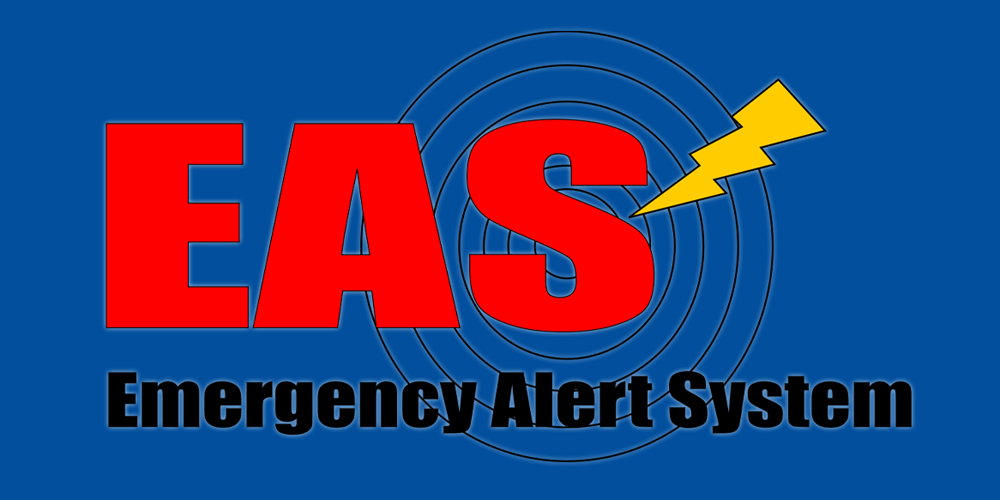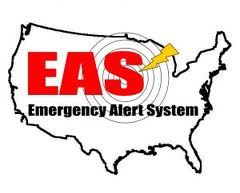
The FCC has given broadcasters some extra time to make sure their emergency alerts comply with new rules that favor IP-based alerts, but only for the broadcasters the agency has concluded really need the extension.

While Americans are getting increasingly used to emergency alerts from local police and fire officials, on October 4 at 2:20 p.m. ET they’ll receive something a little different. “This is a test of the National Wireless Emergency Alert System. No action is needed,” the alert should read. It will be sent to all consumer cell phones in either English or in Spanish, depending on the language settings of the wireless handset.

The FCC is scheduled to vote at its next public meeting on opening an inquiry into whether it can or should require new distribution outlets, including websites and streaming services, to deliver emergency alerts.
It says the action supports more effective local Emergency Alert Tests and PSAs, addresses false alerts, and seeks to improve wireless alerts.
At the FCC monthly meeting in December, Chairman Tom Wheeler plans to consider new Emergency Alert System rules. The commission says the update will help protect EAS against hackers and accidental misuse. The NAB participated in a conference call with several officials of the Public Safety and Homeland Security Bureau earlier this month to discuss impending changes to EAS, several of which the trade group isn’t pleased with.
At 2:20 p.m. ET on Feb. 24, the Federal Emergency Management Agency will be conducting its latest regional EAS header code test in Alabama, Arkansas, Delaware, Florida, Georgia, Illinois, Indiana, Iowa, Kansas, Louisiana, Maryland, Mississippi, Missouri, Nebraska, New Jersey, New York, North Carolina, Oklahoma, Pennsylvania, Puerto Rico, South Carolina, Texas, the U.S. Virgin Islands, Virginia and Washington, D.C.
The commission says the proposed rules would promote community preparedness and ensure that the public receives the most effective alerts during emergencies.
Remaining EAS Revisions Take Effect Dec. 31
More than six months ago the FCC adopted some tweaks of the Emergency Alert System. While most of the changes kicked in last July, two revised sections did not. That’s because those two involve information collections that had to be run past the Office of Management and Budget. But now, according to a notice in the Federal Register, OMB has signed off on the two sections, as a result of which both will be effective as of Dec. 31. Happy New Year!
All four network-affiliated stations in Colorado Springs didn’t play the evacuation EAS alert during Colorado’s most destructive wildfire in state history, but KWHS, a low-power religious station made sure it did. “Everyone can always use a healthy dose of religion,” says Dan Smith, GM at KWHS.
 Late this past Friday, the FCC’s Public Safety and Homeland Security Bureau released a report summarizing the outcome of the first Nationwide Emergency Alert System (EAS) Test conducted on Nov. 9, 2011. The report concludes that the national EAS alert distribution architecture is sound and that the national test was received by a large majority of EAS participants and could be seen and heard by most Americans — more than 80% of EAS participants across the country successfully received and relayed the FEMA test message.
Late this past Friday, the FCC’s Public Safety and Homeland Security Bureau released a report summarizing the outcome of the first Nationwide Emergency Alert System (EAS) Test conducted on Nov. 9, 2011. The report concludes that the national EAS alert distribution architecture is sound and that the national test was received by a large majority of EAS participants and could be seen and heard by most Americans — more than 80% of EAS participants across the country successfully received and relayed the FEMA test message.
Broadcasters Dragging Their Feet On M-EAS
 With the final vote approaching to approve an ATSC standard for a mobile Emergency Alert System, many of the station groups who can vote to OK it have remained silent. According to a source close to the situation, companies that formally abstained from the last vote included ABC, Fox and the IEEE-BT Society. Belo, Cox, Gannett, Ion, Media General, Dispatch, NBC, CBS, Post-Newsweek and Samsung didn’t vote at all.
With the final vote approaching to approve an ATSC standard for a mobile Emergency Alert System, many of the station groups who can vote to OK it have remained silent. According to a source close to the situation, companies that formally abstained from the last vote included ABC, Fox and the IEEE-BT Society. Belo, Cox, Gannett, Ion, Media General, Dispatch, NBC, CBS, Post-Newsweek and Samsung didn’t vote at all.
EAS, Zombie Apocalypse Make Skynet Real
 I can’t help but wonder if EAS is now subject to the same Internet arms race that bedevils online security everywhere, with ever-evolving measures and countermeasures being deployed in an effort to stay one step ahead of those wishing to commandeer the alert system for their own benefit or amusement. If so, the questions becomes: which is worse, false alerts that panic the populace, or a populace that becomes so used to false alerts that they ignore a real one?
I can’t help but wonder if EAS is now subject to the same Internet arms race that bedevils online security everywhere, with ever-evolving measures and countermeasures being deployed in an effort to stay one step ahead of those wishing to commandeer the alert system for their own benefit or amusement. If so, the questions becomes: which is worse, false alerts that panic the populace, or a populace that becomes so used to false alerts that they ignore a real one?
Slow Going Getting New EAS Up And Running
 Broadcasters say they are set to implement the government’s latest Emergency Alert System requirements. However, before that can happen, the FCC needs to finish its analysis of last year’s nationwide test that turned up glitches. And the entire process is suffering from a lack of a requirement that state and local agencies participate.
Broadcasters say they are set to implement the government’s latest Emergency Alert System requirements. However, before that can happen, the FCC needs to finish its analysis of last year’s nationwide test that turned up glitches. And the entire process is suffering from a lack of a requirement that state and local agencies participate.
New EAS Rules Kick In On April 23
In January the FCC released its Fifth Report and Order (5th R&O) in its long-running proceeding aimed at modernizing the Emergency Alert System. The 5th R&O has now been published in the Federal Register, which establishes the effective date for the new rules: April 23. If you and your engineering staff haven’t focused on whether your current facilities conform to the standards set out in the 5th R&O, the countdown has now started.
FCC Revamps Emergency Alert System Rules
 In its latest effort, the FCC issued a Report and Order earlier this week revising the FCC’s Part 11 EAS Rules to specify the manner in which EAS participants must be able to receive CAP-formatted alert messages, and making other changes to clarify and streamline the Part 11 Rules. All EAS participants are required to be able to receive CAP-formatted EAS alerts no later than June 30, 2012.
In its latest effort, the FCC issued a Report and Order earlier this week revising the FCC’s Part 11 EAS Rules to specify the manner in which EAS participants must be able to receive CAP-formatted alert messages, and making other changes to clarify and streamline the Part 11 Rules. All EAS participants are required to be able to receive CAP-formatted EAS alerts no later than June 30, 2012.
National EAS Test Raises Interesting Issues
The country’s first nationwide Emergency Alert System test is set for Nov. 9, at 2 p.m. ET. FEMA and the FCC have strongly urged test participants to get advance word of the test out to the public to avoid an Orson Welles War of the Worlds type of panic when the national test is initiated. To that end, FEMA has produced a PSA that EAS participants can use to forewarn the public. An interesting issue that has arisen is whether the spots require sponsorship identification under the FCC’s sponsorship identification rules.
FCC Further Extends EAS CAP Deadline
The FCC today granted a request to extend the deadline for Emergency Alert System participants to implement the Common Alerting Protocol (CAP) standard. The commission has moved the deadline from Sept. 30 to June 30, 2012. The extension means that the thousands of EAS participants across the country now have additional time to acquire and install the equipment needed to become CAP-compliant.
The Federal Emergency Management Agency and the FCC will conduct the first national test of the country’s Emergency Alert System on Wednesday, Nov. 9, at 2 p.m. ET. The duration may be up to three-and-a-half minutes.
Late Thursday, the FCC released an Order laying the groundwork for the first national test of the Emergency Alert System. The order modifies the FCC’s rules to authorize such tests as well as to establish the ground rules for conducting them.









































